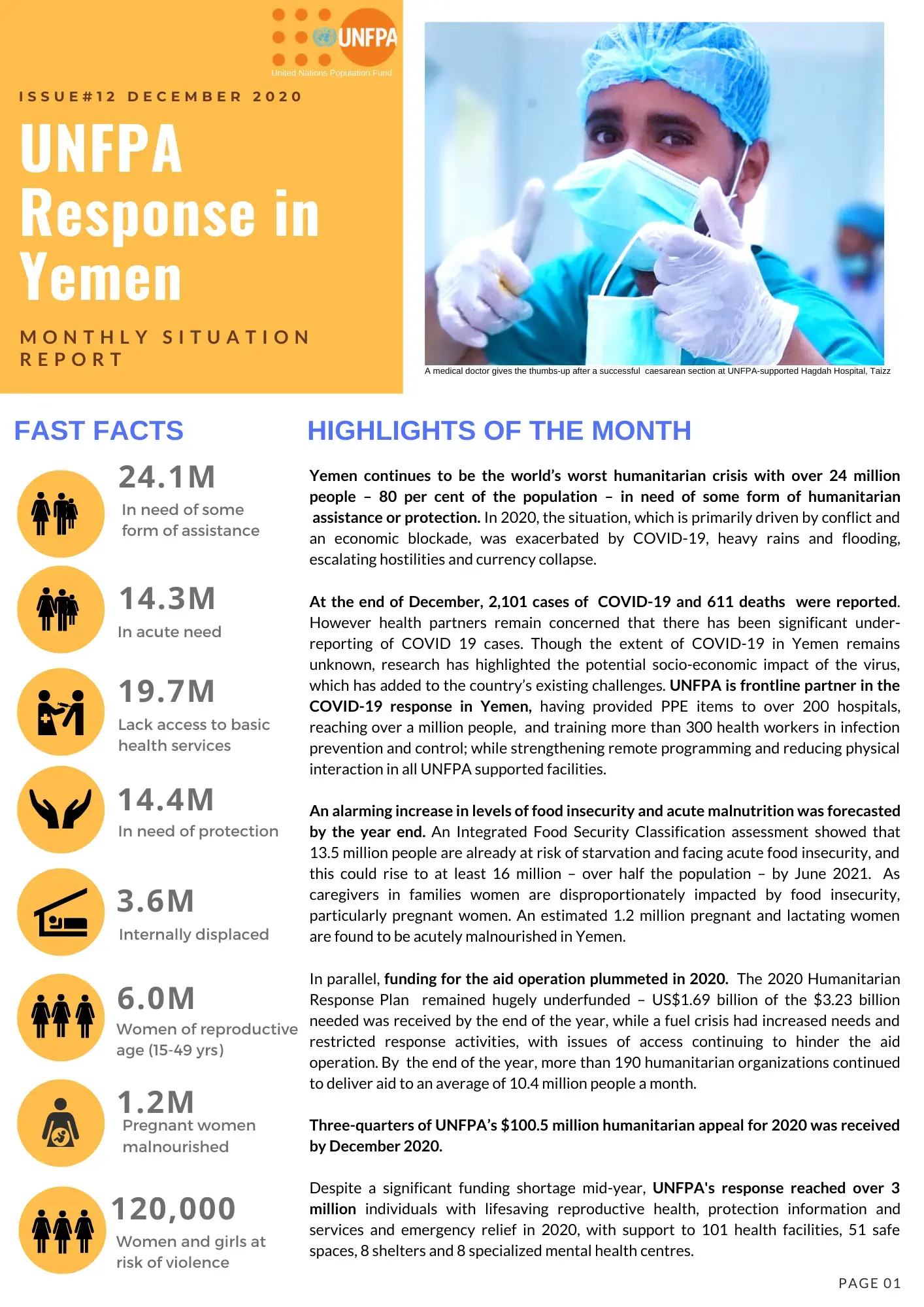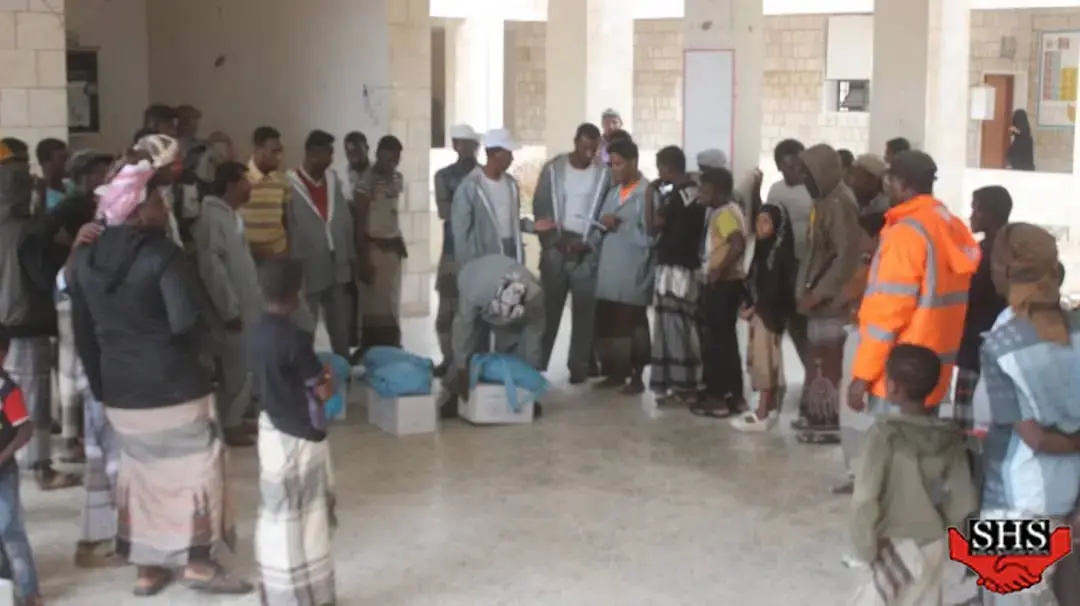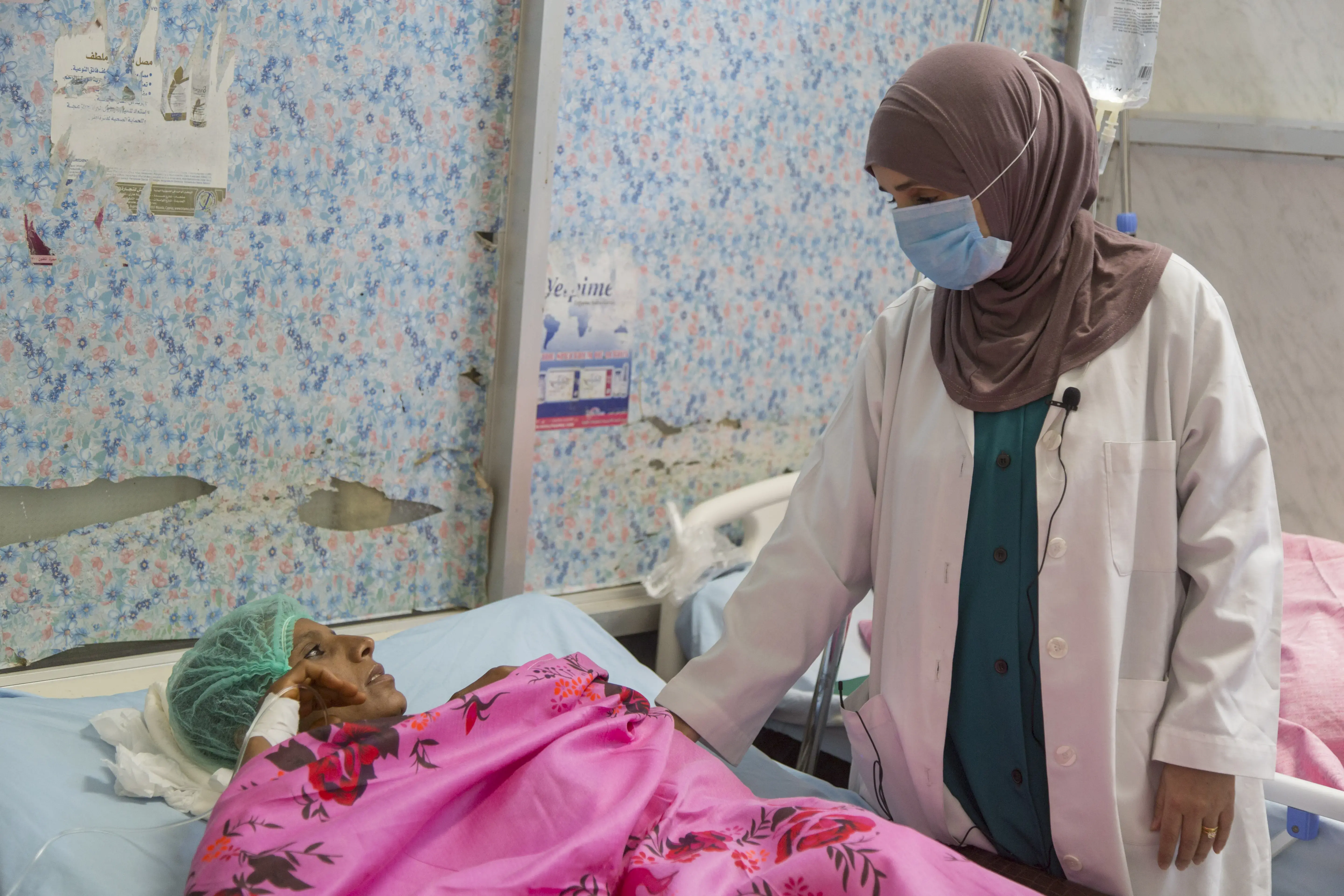Yemen continues to be the world’s worst humanitarian crisis with over 24 million people – 80 per cent of the population – in need of some form of humanitarian assistance or protection. In 2020, the situation, which is primarily driven by conflict and an economic blockade, was exacerbated by COVID-19, heavy rains and flooding, escalating hostilities and currency collapse.
At the end of December, 2,101 cases of COVID-19 and 611 deaths were reported. However health partners remain concerned that there has been significant under-reporting of COVID 19 cases. Though the extent of COVID-19 in Yemen remains unknown, research has highlighted the potential socio-economic impact of the virus, which has added to the country’s existing challenges. UNFPA is frontline partner in the COVID-19 response in Yemen, having provided PPE items to over 200 hospitals, reaching over a million people, and training more than 300 health workers in infection prevention and control; while strengthening remote programming and reducing physical interaction in all UNFPA supported facilities.
An alarming increase in levels of food insecurity and acute malnutrition was forecasted by the year end. An Integrated Food Security Classification assessment showed that 13.5 million people are already at risk of starvation and facing acute food insecurity, and this could rise to at least 16 million – over half the population – by June 2021. As caregivers in families women are disproportionately impacted by food insecurity, particularly pregnant women. An estimated 1.2 million pregnant and lactating women are found to be acutely malnourished in Yemen.
In parallel, funding for the aid operation plummeted in 2020. The 2020 Humanitarian Response Plan remained hugely underfunded – US$1.69 billion of the $3.23 billion needed was received by the end of the year, while a fuel crisis had increased needs and restricted response activities, with issues of access continuing to hinder the aid operation. By the end of the year, more than 190 humanitarian organizations continued to deliver aid to an average of 10.4 million people a month.
Three-quarters of UNFPA’s $100.5 million humanitarian appeal for 2020 was received by December 2020.
Despite a significant funding shortage mid-year, UNFPA's response reached over 3 million individuals with lifesaving reproductive health, protection information and services and emergency relief in 2020, with support to 101 health facilities, 51 safe spaces, 8 shelters and 8 specialized mental health centres.





